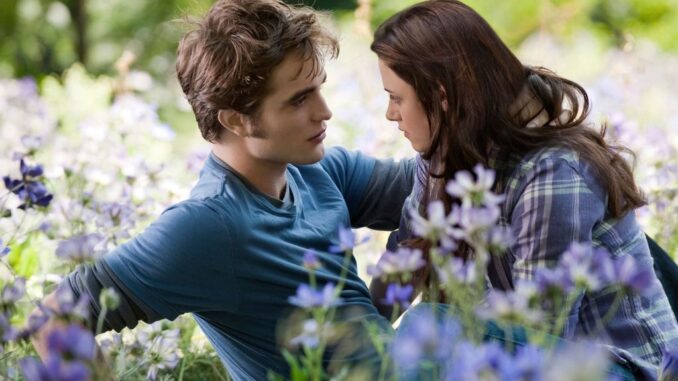
The Shimmering Facade: Re-Watching Twilight Through a Creep-Tinted Lens
The year was 2008. I was a teenager, and the world was awash in a sepia-toned, romantic haze. Forks, Washington, became synonymous with longing glances, forbidden love, and the undeniable allure of the supernatural. I, like millions of others, fell headfirst into the world of Twilight, captivated by the epic romance between Bella Swan and Edward Cullen. Looking back now, however, years wiser and with a more critical eye, that shimmering facade has begun to crumble. Re-watching Twilight isn't the same nostalgic experience it once was; instead, a chilling realization dawns: Edward Cullen, the brooding, romantic hero of my youth, is, quite frankly, a creep.
The creepiness is not subtle; it's woven into the very fabric of his character. From the moment Bella arrives in Forks, Edward is obsessed. This obsession isn't portrayed as endearing or charming, but as unsettlingly invasive. He watches her. He studies her. He knows more about her than she knows about herself, all without her consent or even awareness. This constant surveillance, presented as protective and caring, is nothing short of stalking. Remember the iconic scene in the cafeteria, where he sits rigidly, staring intensely at Bella, repulsed by her scent? While the film frames it as a battle against his vampire nature, re-watching it, you see a predator sizing up his prey, a possessive gaze that feels distinctly uncomfortable.
Beyond the surveillance, Edward’s control over Bella’s life is deeply problematic. He consistently undermines her agency, making decisions for her under the guise of protecting her from danger. He manipulates her, gaslighting her into believing that she is incapable of living without him. He forbids her from seeing Jacob, isolating her from her friends and family, all in the name of "love." This isn't the protective embrace of a devoted boyfriend; it's the suffocating grip of a controlling partner, subtly chipping away at her independence.
Furthermore, the power imbalance in their relationship is staggering. Edward is a century-old vampire with superhuman strength and abilities. Bella is a vulnerable, awkward teenager. He is physically and emotionally superior, creating a dynamic where she is constantly at a disadvantage. This disparity is often romanticized as a testament to his self-control, but it's fundamentally unequal and ethically questionable. He literally has the power to destroy her, yet she is supposed to trust him implicitly. This trust, built on his carefully constructed image of the tormented hero, feels increasingly fragile and misplaced.
Of course, the argument can be made that Edward is a fictional character, a fantastical creation designed to embody the idealized romantic hero. But even within the context of the fantastical, his behavior raises serious concerns. He exemplifies the harmful tropes of possessiveness, control, and obsessive behavior that are often romanticized in popular culture. By presenting these traits as desirable and heroic, Twilight inadvertently normalizes and even encourages them, especially amongst young audiences who are still developing their understanding of healthy relationships.
Looking back at Twilight now, I see a shimmering facade built on a foundation of unhealthy obsession and control. The romantic fantasy I once embraced has been replaced by a more critical awareness of the problematic dynamics at play. Edward Cullen, the vampire prince of my teenage dreams, is now, in retrospect, a testament to how easily we can romanticize toxic behavior when it's wrapped in a package of brooding good looks and supernatural charm. The sun still shines on Forks, Washington, but the sepia-toned haze has lifted, replaced by a stark and unsettling reality. Watching Twilight now is a reminder that even the most captivating love stories should be viewed with a discerning eye, lest we mistake control for love and obsession for devotion.
